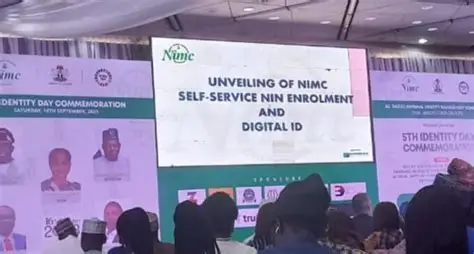The Times Fact Check: Dr. Kayode Olanorin’s Media Police


Media Police
Truth Watch is a public interest column dedicated to exposing false claims, spotlighting ethical concerns in journalism, and equipping the public with tools to navigate today’s fast-changing information landscape.
The feature is part of a wider effort to strengthen truth and accountability in media.
This week’s top false claim
Claim: The Nigerian government is giving N500,000 to all NIN holders before August 1.
Verdict: False
A viral message spreading on WhatsApp and Facebook claims that the federal government is disbursing N500,000 to all Nigerians with a national identity number (NIN). The message includes a suspicious link and urges recipients to act quickly to claim the supposed benefit.
Checks show that the website is not affiliated with any government agency. There have been no official announcements from the federal ministry of finance, the National Identity Management Commission (NIMC), or any other credible source confirming such a cash transfer.
This is a phishing scam aimed at collecting personal data. Trusted fact-checkers such as Dubawa and FactCheckHub have flagged similar scams. Users are advised to never click unsolicited links, verify information via official .gov.ng sites, and report suspicious activity to relevant authorities.
Media ethics watch
Headline in focus: “Zamfara Villagers Flee as Military Bombs Civilian Homes in Error” – Daily Dispatch, July 18
A report published last week by the Daily Dispatch raised eyebrows for its sensational headline and lack of journalistic rigour.
The article claimed that an airstrike mistakenly hit civilian homes but provided no eyewitness accounts, photographs, or official responses from military authorities.
The Nigerian Air Force (NAF) later denied the claim and issued clarifications, but the original story was not updated or corrected by the publication. However, the report has since been taken down by the newspaper.
This is a case of poor editorial practice. Stories involving conflict and security require careful verification. Sensational headlines without supporting evidence can cause unnecessary panic and erode public trust in the media.
Headline: Nigerian Guild of Editors Suspends Journalist for Breaching Off-the-Record Protocol
On 4 July 2025, the Nigerian Guild of Editors (NGE) suspended journalist Steve Osuji for one year after he published excerpts from an off-the-record keynote address delivered by the Director-General of the Department of State Service (DSS), Mr. Adeola Ajayi, during the Guild’s national convention in Enugu. The remarks were designated confidential.
The Guild stated that members had agreed the speech was not for public circulation — a rule upheld under Article 4 of the Revised Code of Ethics concerning confidentiality.
The incident underscores the importance of editorial responsibility, confidentiality, and adherence to professional standards. Publishing remarks marked off‑the‑record violates trust and can erode credibility.
Tool of the week: InVID verification plugin
In an era where doctored images and misleading videos spread rapidly, digital verification tools are essential. One such tool is InVID, a browser plugin that helps users examine the authenticity of videos and images by checking metadata, keyframes, and related sources.
Originally created for newsrooms, InVID is now widely used by civil society groups, educators, and digital literacy advocates. It’s a valuable resource for anyone who wants to verify visual content before sharing.
Visit: www.invid-project.eu/tools-and-services
Quote of the week
Once there is an “off the record” agreement between the journalist and the source, a breach of that agreement would amount to an ethical violation and professional misconduct. But that agreement must be reached before the information is provided. — Edetaen Ojo, Executive Director, Media Rights Agenda





